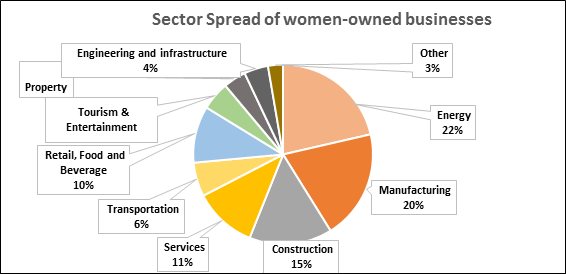The commitment of the National Empowerment Fund (NEF) to empowering businesses owned and managed by Black women entrepreneurs has been given a major boost following an allocation of R141m by the dtic, the shareholder ministry of the development financier, for investment across the key sectors of the economy, says CEO Philisiwe Mthethwa.
“This is an important development that will see the NEF Women Empowerment Fund (WEF) doing more to place Black women at the forefront of the economy. This is aimed at enhancing the participation of Black women-owned businesses in the South African economy to accelerate job creation and increase the productive capacity of the South African economy.
Thanks to the dtic, concessionary funding will be provided from R250,000 up to R10m for each transaction. The loans will not accrue interest for the first six months. After the interest-free period, the funding will accrue interest at a fixed rate of 1.5% for the remainder of the term. The NEF will provide pre-investment and post-investment support through monitoring the progress of the businesses and will provide free mentorship to improve the chances of business success. The concessionary funding will be blended with standard NEF funding,” says Mthethwa.
Funding criteria
The WEF will provide funding for businesses across various sectors including agro-processing, beneficiation, construction, franchising, manufacturing, property, renewable energy, services, tourism, transportation, among others. The NEF will blend the funds available under the WEF with its regular loan funding. This means no transaction may be solely funded from the dtic portion of the WEF. It is therefore a condition for accessing WEF funding that there be a loan portion from the NEF. Funding will be assessed in accordance with the following criteria:
- Majority ownership, control and management by Black women;
- Must be registered and recognised under South African law (company, close corporation, co-operative, collective investment scheme, NPO’s and community trusts);
- Be registered for tax, be in good standing with SARS and have a valid tax clearance certificate;
- Be involved in primary, secondary and tertiary sectors of the economy (with the exclusion of purely alcohol businesses, purely tobacco businesses, arms and ammunitions and related sectors);
- be located in rural areas and/or townships;
- Sustain and create employment;
- Have a viable businesses case;
- The funding will be for startups, existing business seeking expansionary capital, and for acquisition finance.
“South Africa’s history, which has seen especially Black rural women relegated to the lowest rungs both socially and economically, demands no less an aspiration than to ensure women’s participation in every sector of the economy. The NEF invites applications from women who meet the requirements for funding across the various sectors,” says the NEF.
Sector spread of women-owned businesses
“Within the NEF’s franchise portfolio, the energy sector ranks as the most vibrant and successful both commercially and in terms of repayment trends to the NEF. The relationship with the various petroleum companies is in line with the NEF SME strategy that seeks to leverage the technical expertise provided by these companies for the benefit of Black and women-owned enterprises who wish to own fuel service stations, hence the energy sector is the highest category under franchising. Within the NEF’s portfolio, this sector has 44% women ownership which is a quantum leap in the industry,” explains Zama Khanyile, the NEF’s acting divisional executive for Venture Capital and Corporate Finance.
She says the manufacturing sector has also generated growing interest among Black women entrepreneurs, examples of which are Smith Capital, which manufactures aerial platforms and truck-mounted cranes, as well as businesses involved in textile and foot-ware manufacturing, among others.
In construction, various businesses lead the sector through general building of houses and office parks, civil engineering, rail infrastructure and concrete mixing. The pie-chart below provides a sector breakdown of women-owned businesses funded by the NEF:
Women supporting the country to flatten the curve of the Covid-19 pandemic
“More recently the NEF has funded businesses owned by Black women involved in the manufacture of healthcare products to help the country fight the Covid-19 pandemic. These products include hand sanitisers, facial masks and medical gowns, among others,” adds Khanyile.






































